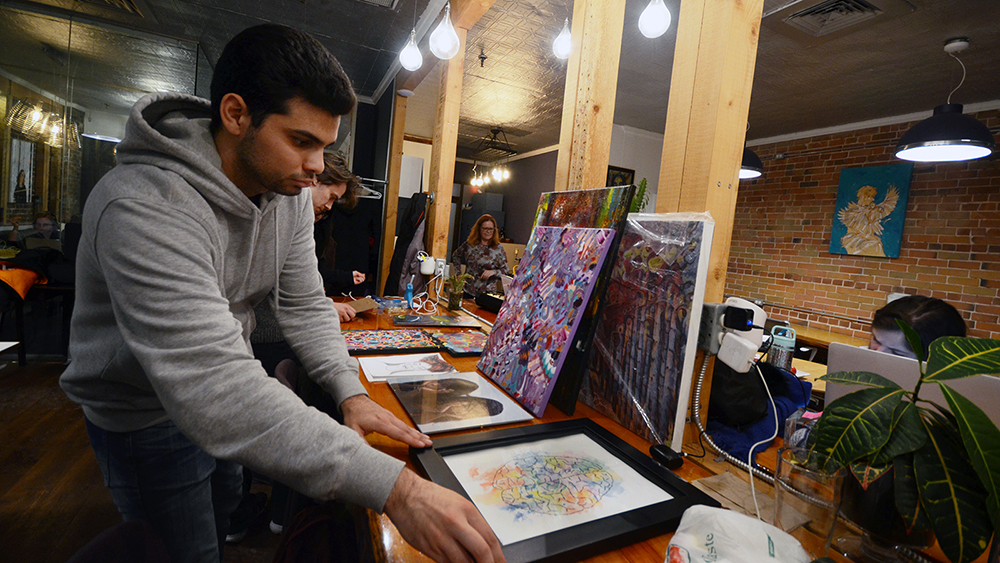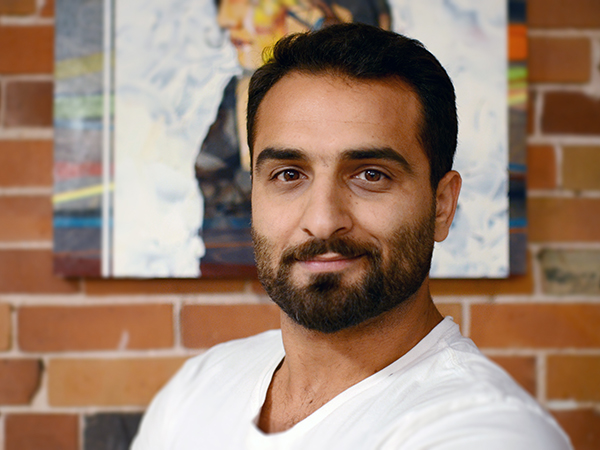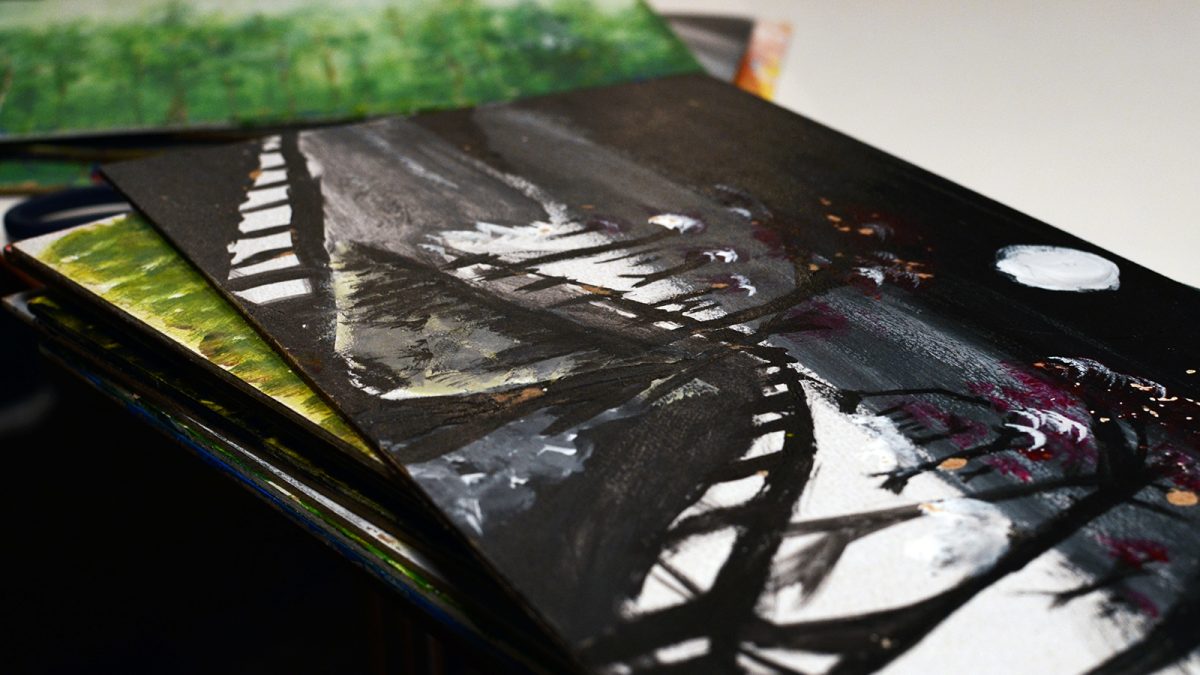Snowy skies, cold weather and little daylight drive many Canadians to type “seasonal affective disorder” (SAD) into their search bars at this time of year.
Although internet searches are not a scientific measure of the prevalence of the disorder, Canadian Google search results for SAD — a type of depression brought about by changes in the weather — peak in the months of November and January, with dips around the holidays.
According to the Centre for Addiction and Mental Health’s video on the subject, solutions to seasonal depression come in many forms, including light therapy and anti-depressants.
But a non-standard treatment for the winter blues is cropping up around Ottawa: art therapy.
Randy-Joe Sidawi is the founder of Art Therapy for Mental Illness, an Ottawa group that encourages mental-health awareness through art. On Nov. 27, the group held a silent art auction at Orange Art Gallery to raise funds for Ancoura, a charity that provides housing to the mentally ill.

“The purpose of the auction is to encourage art and artists from the community to promote art and mental health at the same time,” Sidawi said.
Sidawi founded Art Therapy for Mental Illness as a student. He was going through mental health problems at the time.
“I lost purpose in life. The art brings you back,” Sidawi said. “Like, ‘Oh, I can create, I can make art, I can see beauty now, I can express myself and make myself understand more about myself’ … I think the best therapy for us as humans is to be understood.”

Sidawi grew up in Lebanon, where seasonal affective disorder is practically non-existent — as, he said, is mental-health awareness.
Sidawi has branched off from Ottawa to also run an art therapy event in Lebanon. He said people are much more attuned to their mental health in Ottawa and stressed the importance of sunlight and outdoor activities.
Art therapist Julia Vlaming agreed. She sees most of her clients in the fall and winter, because they don’t enjoy the snow and having to go out into the darkness.
Vlaming started Ottawa Art Therapy as a practice in 2013 after studying psychology and art therapy. She works with patients of all ages to allow them to express themselves in ways traditional therapy might not allow. That might include painting, singing or writing poetry as means of expression and catharsis.
Vlaming says that youth are the largest client demographic.
“Children and teenagers are in school throughout these months and it adds to their stress,” Vlaming said. “The colder it gets the harder school gets.”
The relationship between art and mental health is well-documented — a 2015 study from the National Institute of Health found that statistically positive benefits were reported from the use of art therapy. This included alleviating symptoms of depression, anxiety, trauma and low self-esteem.

It’s with benefits like these in mind that art therapy events like Sidawi’s are held.
Claudia Salguero is one of many artists who donated her art to the silent auction. She also helped Sidawi curate the pieces.
Salguero recalled how a collaborative mural she worked on in a low-income community helped socialize a man who would never leave his room, by encouraging him to come out and make art.
“This guy was transformed by the process,” Salguero said. “With every workshop, he would be the first person to arrive and the last person to leave … he said to me, ‘this is the first time in 12 years I feel I can do some good with who I am.’”
Salguero has been an artist most of her life, but recently has shifted her focus to community art projects.
“Right now, I feel this is my mission,” Salguero said.
The piece Salguero is donating to the auction has particular meaning to her in relation to mental health.
“It is a butterfly with his wings broken, and it is flying and trying to get out of the darkness and go to a lighter place,” Salguero said. “Broken but still flying.”
Accessing community health services in Canada
According to Statistics Canada, between 20 and 25 per cent of Canadians surveyed about community health have consistently reported experiencing difficulty accessing various health-care services. This includes care from a specialist, such as psychiatrist consultation and diagnosis. (Source: 2016 report on difficulty accessing health care services in Canada, with data from the 2003, 2005, 2007, 2009, 2011, and 2013 Canadian Community Health surveys.)
Need help? Here are some mental-health resources in the National Capital Region:
Ottawa Mental Health Crisis Line: 613-722-6914
Ottawa Suicide Prevention: 613-238-3311
Association québécoise de prévention du suicide: 1-866-277-3553





[…] here is an Ottawa newspaper article from today called “can you paint away the winter blues?” Well I tried, that’s for […]